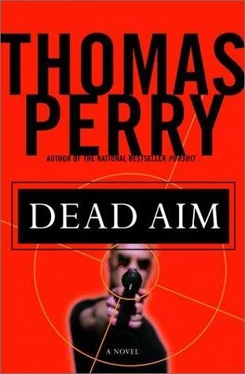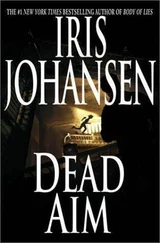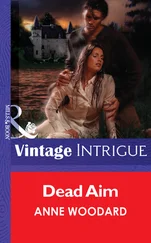Thomas Perry - Dead Aim
Здесь есть возможность читать онлайн «Thomas Perry - Dead Aim» весь текст электронной книги совершенно бесплатно (целиком полную версию без сокращений). В некоторых случаях можно слушать аудио, скачать через торрент в формате fb2 и присутствует краткое содержание. Жанр: Триллер, на английском языке. Описание произведения, (предисловие) а так же отзывы посетителей доступны на портале библиотеки ЛибКат.
- Название:Dead Aim
- Автор:
- Жанр:
- Год:неизвестен
- ISBN:нет данных
- Рейтинг книги:4 / 5. Голосов: 1
-
Избранное:Добавить в избранное
- Отзывы:
-
Ваша оценка:
- 80
- 1
- 2
- 3
- 4
- 5
Dead Aim: краткое содержание, описание и аннотация
Предлагаем к чтению аннотацию, описание, краткое содержание или предисловие (зависит от того, что написал сам автор книги «Dead Aim»). Если вы не нашли необходимую информацию о книге — напишите в комментариях, мы постараемся отыскать её.
Dead Aim — читать онлайн бесплатно полную книгу (весь текст) целиком
Ниже представлен текст книги, разбитый по страницам. Система сохранения места последней прочитанной страницы, позволяет с удобством читать онлайн бесплатно книгу «Dead Aim», без необходимости каждый раз заново искать на чём Вы остановились. Поставьте закладку, и сможете в любой момент перейти на страницу, на которой закончили чтение.
Интервал:
Закладка:
She was through with Parish, through with hunting. She was going home to Massachusetts. By the time she had reached her room, wiped it clean of her fingerprints, and checked her overnight bag, she could look down at the street through the window and see police cars and ambulances. She sighed. She knew she would have to drag Tim’s bag home with her too. He had turned out to be a lousy lover and a coward too, but she couldn’t take the risk of letting him get caught and questioned by the police.
CHAPTER 26
Mallon felt light and cold now, his body no longer reacting to the sudden rush of adrenaline, but to the fact that it had stopped. The emergency was over. He walked along the street for another block, feeling his strength returning. He stopped to look behind him, but he could see nobody who might have followed him.
Mallon stepped into the first lighted doorway he saw. It was a small coffee shop that looked as though half of its business came from homeless men who cadged change from
people on Sunset Boulevard and came here to spend it. A pay telephone hung on the wall, where everyone would hear him talk, but he put in two quarters and dialed 911.
When the emergency operator came on, his quarters came back. He said, “My name is Robert Mallon. I’ve just been attacked by two men with guns in the parking garage under the Beverly Towers Hotel. They shot at me, but I ran over them with my car.”
The operator sounded strangely calm, almost sleepy. “And where are you now, sir? Where are you calling from?”
“A coffee shop on Santa Monica Boulevard, a few blocks from the hotel. I drove away because there were two more with them.”
“All right, sir,” she said. “I want you to stay on the line now, and I’m going to send officers to come and pick you up. All right?”
“I guess so,” he said. “Sure.”
The time seemed to pass very slowly. He was aware that several people in the coffee shop had heard his conversation, and they were watching him. The waitress kept glancing at him and wiping the counter with a rag so filthy that the surface looked gelatinous. At last, through the front window, he saw the police car come up Santa Monica with its flashing lights on, then swing around in a wide turn to stop at the curb just outside.
Mallon said into the phone, “They’re here. Got to go,” and hung up. On the way to the door he said to the waitress, “Thanks for the use of the phone.”
She shrugged and muttered, “It’s not mine.”
He stepped outside as the two cops got out of their car. They both wore body armor under their shirts, so they looked big and square as they moved to intercept him. “Are you Mr. Mallon?” asked the nearest one. The other stood to the side, and Mallon knew he wasn’t supposed to be aware that the man had his right hand resting on the grip of his gun while they waited for him to answer.
“I’m Robert Mallon. Thank you for coming so quickly.”
The two moved in. The one who had not spoken said, “I’m sorry, sir, but we’ve got to see what’s in your pockets. Can you turn around for me and put your hands up on the wall here?”
“Sure,” said Mallon, but he didn’t need to do anything. The two were already turning him and pushing him into position.
One of them said, “Am I going to find any weapons?”
“No.”
He kept up the questions as he reached into Mallon’s pockets and turned them inside out, then began efficiently patting his ribs, his legs, his ankles. “Anything that might cut or poke me, like a knife or a needle?”
“Nothing.”
They finished quickly, and the other cop pulled him back from the wall. “Now, why don’t you tell us what happened?”
Mallon carefully repeated the story he had told the operator, and the two cops listened intently, their faces expressionless. It occurred to Mallon that he had spent more time with police officers lately than he had when he’d worked in the parole department. In those days he had spent most of his time alone with the parolees in his caseload.
“Where’s your car?”
“Back there about two blocks.” He pointed. “I parked it so I could look for a phone.”
“Why did these guys pick you? Were they trying to rob you?”
“I don’t think so,” said Mallon. “I think they were just trying to kill me.”
“Why would they do that?”
Mallon looked at him, and began his story for the first time that evening, wondering how many times he would have to tell it again before morning.
He told it four times, to four different sets of interrogators. After one of them called Detective Fowler in Santa Barbara, their demeanor changed slightly. He was placed in the third small room of the evening, and this time the detective was a sad-looking man named Diehl. He brought Mallon a cup of coffee.
He said, “The two dead men’s hands tested positive for gun powder. Before you hit them, they both discharged their weapons. Yours tested negative, so there isn’t much argument about who put the holes in your car windows. You’re no longer a hit-and-run. Now you’re a self-defense.”
“Do you know who they are?” asked Mallon.
Diehl shook his head. “No, do you?”
“No.”
Diehl took the top off his own cup of coffee and sipped it, then set it on the table in front of him and leaned back. “Detective Fowler in Santa Barbara says this seems to happen to you a lot. Why is that?”
Mallon answered, “I’ve told everybody else the same thing. I don’t know for sure. About a month ago, I saved a woman named Catherine Broward from drowning herself in the ocean. While I was out getting us some dinner, she apparently walked to her car, took out a gun, and shot herself. I hired a detective named Lydia Marks to find out why she did that.”
“Why?”
“I’m not positive that she did. Lydia had a theory, but-”
“No,” Diehl interrupted. “Why did you do that?”
“I happened to see her while she was trying to kill herself,” said Mallon. “I thought I had stopped it, but I’d just interrupted it for a few hours, while I talked to her, got to know her a little, came to like her a lot. It was like holding a bubble in your hand: if you stop thinking about keeping the bubble intact, turn your eyes away, make a move, the bubble is gone. I turned my back on Catherine Broward for a short time, and she was gone. I needed to know why she would try so hard to kill herself. I thought if I found out about her life, it would tell me the answer. So I hired somebody who knew how to find out about people. I picked Lydia Marks because I knew her-used to work with her years ago-but also because she was a woman. I thought that maybe she could help me understand Catherine better.”
“You didn’t answer my question,” said Diehl. “Why did you care?”
“That’s one of the things that I’m learning. After she died, I tried to convince myself that it must be just detached curiosity, like science, because I wouldn’t be foolish enough to care so much about somebody I didn’t actually know very well. Then I decided that it must be some kind of midlife crisis-that it was about my own mortality. But it was Catherine. I liked her. For a few hours she made life surprising and mysterious again. I wanted her to live, and if she had, I would have tried to know her better. I’m still not sure whether that would have worked out, but I wanted her to live.”
Diehl’s melancholy stare did not change. He had tired eyes that looked red enough to hurt. “You found something about her that somebody didn’t want known, or somebody thinks that you did. That’s your theory now, I take it?”
“It’s not just me they seem to be after. It’s everyone who was trying to find out about why Catherine Broward died. Lydia Marks is dead. My attorney, Diane Fleming, seems to have gone somewhere-maybe into hiding, maybe kidnapped. I came down here to see if I could get help from an LAPD detective named Angela Berwell. She knew Lydia, and we had talked to her about Catherine’s death. Before I got a chance to talk to her, these people found me.”
Читать дальшеИнтервал:
Закладка:
Похожие книги на «Dead Aim»
Представляем Вашему вниманию похожие книги на «Dead Aim» списком для выбора. Мы отобрали схожую по названию и смыслу литературу в надежде предоставить читателям больше вариантов отыскать новые, интересные, ещё непрочитанные произведения.
Обсуждение, отзывы о книге «Dead Aim» и просто собственные мнения читателей. Оставьте ваши комментарии, напишите, что Вы думаете о произведении, его смысле или главных героях. Укажите что конкретно понравилось, а что нет, и почему Вы так считаете.












